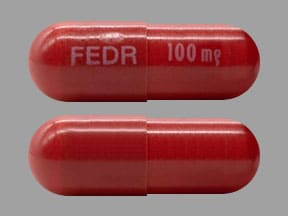What is Inrebic?
Inrebic is a prescription medicine used to treat adults with certain types of myelofibrosis (MF).
It is not known if Inrebic is safe and effective in children.
What is the most important information I should know about Inrebic?
Inrebic may cause serious side effects, including:
- Encephalopathy (including Wernicke's encephalopathy). A serious and sometimes fatal neurological problem called encephalopathy (including Wernicke's encephalopathy) has happened in some people who take Inrebic.
Wernicke's encephalopathy is a neurologic emergency that can happen if you do not have enough vitamin B1 (thiamine) in your body. Your healthcare provider will do a blood test to check your vitamin B1 level before starting and during treatment with Inrebic. Your healthcare provider may tell you to stop taking Inrebic and take a vitamin B1 supplement if you develop side effects during treatment with Inrebic.
Call your healthcare provider right away if you develop diarrhea, nausea, or vomiting that does not respond to treatment.
Get emergency medical help right away if you develop the following:
- confusion, memory problems or drowsiness
- problems with balance and movement, such as difficulty walking
- eye problems, such as double or blurred vision or abnormal eye movements
Call your healthcare provider if you experience rapid weight loss or weight loss that does not get better with treatment.
What should I tell my healthcare provider before taking Inrebic?
Before taking Inrebic, tell your healthcare provider about all your medical conditions, including if you:
- have low red blood cell or platelet counts
- have or have had liver problems
- have or have had kidney problems
- are breastfeeding or plan to breastfeed. It is not known if Inrebic passes into your breast milk. You should not breastfeed during treatment with Inrebic and for at least 1 month after your last dose. Talk to your healthcare provider about the best way to feed your baby during treatment with Inrebic.
Tell your healthcare provider about all the medicines you take, including prescription and over-the-counter medicines, vitamins, and herbal supplements.
Inrebic and other medicines may affect each other causing unwanted side effects. Know the medicines you take. Keep a list of them to show your healthcare provider and pharmacist when you get a new medicine.
How should I take Inrebic?
- Take Inrebic exactly as your healthcare provider tells you to. Do not change your dose or stop taking Inrebic unless your healthcare provider tells you to.
- Take Inrebic 1 time each day.
- Take Inrebic with or without food. Taking Inrebic with a high fat meal may help to reduce nausea and vomiting symptoms.
- If you miss a dose of Inrebic, skip the missed dose and take your next dose at your regular time. Do not take 2 doses to make up for the missed dose.
What are the possible side effects of Inrebic?
Inrebic can cause serious side effects, including:
- See "What is the most important information I should know about Inrebic?"
- Low blood cell counts. Inrebic may cause low red blood cell counts (anemia) and low platelet counts (thrombocytopenia) in some people. You may need a blood transfusion if your blood counts drop too low. Your healthcare provider will do blood tests to check your blood counts before you start and during treatment with Inrebic. Tell your healthcare provider if you develop any bleeding or bruising during treatment with Inrebic.
- Nausea, vomiting, and diarrhea. Your healthcare provider may give you certain medicines to help treat your nausea, vomiting, and diarrhea. Call your healthcare provider or get emergency medical help right away if you have nausea, vomiting, or diarrhea that does not get better with treatment.
- Liver problems. Your healthcare provider will do blood tests to check your liver function before starting and during treatment with Inrebic.
- Amylase and lipase increases. You may have changes in your blood amylase or lipase levels that may indicate a problem with your pancreas. Your healthcare provider will do blood tests to check your amylase or lipase levels before starting and during treatment with Inrebic.
The most common side effects of Inrebic include:
- diarrhea
- nausea
- low red blood cell counts (anemia)
- vomiting
These are not all of the possible side effects of Inrebic.
Call your doctor for medical advice about side effects. You may report side effects to FDA at 1-800-FDA-1088.
Inrebic Images
General information about the safe and effective use of Inrebic
Medicines are sometimes prescribed for purposes other than those listed in a Medication Guide. Do not use Inrebic for conditions for which it was not prescribed. Do not give Inrebic to other people, even if they have the same symptoms you have. It may harm them. You can ask your healthcare provider or pharmacist for information about Inrebic that is written for health professionals.
How should I store Inrebic?
Store Inrebic below 86°F (30°C).
Keep Inrebic and all medicines out of the reach of children.
What are the ingredients in Inrebic?
Active ingredient: fedratinib
Inactive ingredients: silicified microcrystalline cellulose and sodium stearyl fumarate. The capsule shell contains gelatin, red iron oxide, titanium dioxide and white ink.





